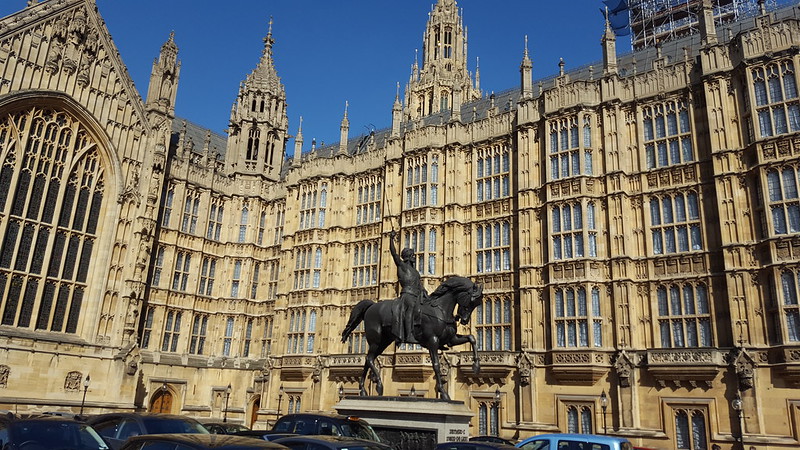
[Image credit “Houses of Parliament – detail” by EEPaul is licensed under CC BY 2.0 ]
The Justice Secretary, Dominic Raab, has announced an overhaul of human rights law following the publication of the Independent Human Rights Act Review. The Review was set up to consider how the Human Rights Act was working in practice and whether any changes were needed.
Two key themes were considered in the Review:
- The relationship between the domestic courts and the European Court of Human rights.
- The impact of the Human Rights Act on the relationship between the judiciary, the executive and the legislature.
A consultation paper has now been published setting out the government’s proposals to revise the Human Rights Act and replace it with a Bill of Rights. However, the official Review did not recommend the replacement of the Act finding instead that there was an “overwhelming body of support for retaining it”.
In the foreword to the consultation, the government says it is making far-reaching proposals for reform. Reference is made to “problematic areas”, including the ‘challenges’ in deporting foreign national offenders.
The focus on foreign national offenders may come from successful challenges made against deportation orders. Up to 70 per cent of appeals in these circumstances were successful, based on the right to family life, a statistic the government may not like.
Proposals include allowing judges to override rulings from the European Court of Human Rights. The Bill of Rights would say that the UK Supreme Court was the ultimate judicial arbiter of laws in the implementation of human rights. One of the options refers to the court having to have particular regard to the text of a ‘right’ when deciding a human rights question and that they would not be required to follow or apply any judgment of the European Court.
The Bill of Rights will also:
- strengthen the right to freedom of expression.
- implement a permission stage to ensure “spurious cases do not undermine public confidence in human rights”.
- restrain the ability of the courts to impose positive obligations onto public authorities using human rights law, without proper democratic oversight.
- ensure UK courts are not required to alter or interpret legislation contrary to Parliament’s clearly expressed democratic will.
- safeguard the right to life and absolute prohibition on torture whilst ensuring “other rights cannot be used to frustrate the deportation of serious criminals and terrorists”.
- create a process for assessing the implications of judgments from the Supreme Court and provide a “democratic shield” preserving Parliamentary sovereignty in the exercise of legislative function.
With reference to the case between the Duchess of Sussex and the Daily Mail, a source at the Ministry of Justice reportedly said that freedom of speech needed to be given extra weight, and that free speech has been whittled away, “whether by wokery or political correctness”.
The reforms are proving to be highly controversial, and lawyers have described them as dangerous, being fuelled by political rhetoric rather than necessity. Critics argue the review follows the government losses in several judicial review and immigration cases that were based on human rights arguments.
The President of the Law Society, Stephanie Boyce, says that UK judges do not ‘blindly’ follow the European Court decisions as alleged but do and can disapply them if there is good reason to do so.
Dominic Raab says the proposal will “prevent serious criminals from relying on Article 8 and the right to a family life to frustrate their deportation”. Stephanie Boyce argues that the talk of restricting rights is dangerous, courts have a nuanced job to do, and each case is different. There are instances that foreign criminals have been deported even when there are arguments against deportation based on the right to family life.
A director at Liberty is also unimpressed and detailed cases where the Act had been used positively to assist individuals and described the plans as “a blatant unashamed power grab”. She went on to say that if the proposals go through, our rights will be substantially weakened.
The shadow justice secretary, Steve Reed, was quoted as saying the announcement was a “dead cat distraction tactic by a government who do not know how to fix the criminal justice system that they have broken”. He also blames an “incompetent Conservative government” for issues with the deportation of foreign criminals rather than the Human Rights Act.
What happens now?
The consultation is open until 8 March 2022, following which legislative proposals will be put to Parliament to revise and replace the Human Rights Act with a Bill of Rights.
How can we help?
We ensure we keep up to date with any changes in legislation and case law so that we are always best placed to advise you properly. If you would like to discuss any aspect of your case, please contact any member of our vastly experienced Criminal Defence team, for assistance with any criminal law related matter.
–
Mr John Stokes (John.Stokes@danielwoodman.co.uk),
Mr Anthony Pearce (Anthony.Pearce@danielwoodman.co.uk) or
Mr Daniel Woodman (Daniel.Woodman@danielwoodman.co.uk).










